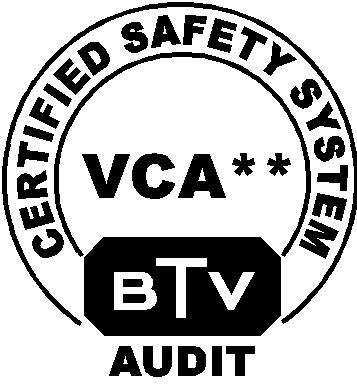In today’s rapidly evolving industrial landscape, maintaining a clean and healthy working environment is of paramount importance. One effective solution to combat airborne contaminants and enhance air quality is the utilization of air scrubbers. These versatile devices play a crucial role in a wide range of industries, ensuring cleaner air and contributing to a safer and healthier workspace.
This article aims to shed light on the industries that can benefit from the implementation of air scrubbers. We will explore the diverse applications of these devices, highlighting their significance in areas such as waste disposal, (petro)chemical production, pharmaceuticals, food processing, animal feed, fertilizer production, oil-processing, electronics, and metal and surface treatment. By understanding the role of air scrubbers in these sectors, we can appreciate their vital role in promoting a cleaner and more sustainable industrial environment.
Waste Disposal and Waste Processing Industry: Air scrubbers find extensive use in the waste disposal and waste processing industry. These devices effectively remove hazardous gases, volatile organic compounds (VOCs), and other harmful particles that are generated during waste treatment processes. By eliminating noxious substances from the air, air scrubbers help safeguard the health and well-being of workers while minimizing the impact on the surrounding environment.
(Petro)chemical Industry: The (petro)chemical industry often deals with a wide array of potentially harmful gases and emissions. Air scrubbers prove invaluable in this sector by removing hazardous substances, including volatile chemicals, particulate matter, and odorous compounds. By efficiently purifying the air, these devices help maintain a safe and sustainable working environment.
Pharmaceutical Industry: Air quality is of utmost importance in the pharmaceutical industry, where product purity and employee safety are paramount. Air scrubbers effectively eliminate contaminants such as airborne bacteria, viruses, and particulate matter, ensuring a controlled environment for research, production, and packaging processes. These devices contribute to meeting stringent quality standards and maintaining a sterile manufacturing environment.
Food Industry: The food industry is subject to strict regulations concerning hygiene and air quality. Air scrubbers play a vital role in removing airborne contaminants, including food particles, microorganisms, and odors, which can compromise food safety and quality. By ensuring clean air circulation, air scrubbers assist in maintaining a sanitized environment, preventing cross-contamination, and preserving the integrity of food products.
Animal Feed: Airborne pollutants can negatively impact animal health and the quality of feed production. Air scrubbers aid in reducing harmful particulates, dust, and allergens in animal feed facilities, thereby minimizing the risk of respiratory issues and ensuring the safety of animals. These devices contribute to creating a healthier working environment for both humans and livestock.
Fertilizer Production and Processing: Air scrubbers are essential in fertilizer production and processing plants. These devices efficiently capture and remove hazardous gases, ammonia, and other chemical compounds that can be detrimental to human health and the environment. By controlling emissions and preventing their release into the atmosphere, air scrubbers help mitigate the ecological impact of fertilizer production.
Oil-Processing Industry: In the oil-processing industry, air scrubbers play a crucial role in removing volatile organic compounds (VOCs), hydrocarbons, and other harmful pollutants. These devices aid in maintaining air quality standards, reducing emissions, and minimizing the risk of health hazards associated with oil refining and processing operations.
Electronics: Clean air is of utmost importance in electronics manufacturing facilities to prevent the buildup of dust and ensure the optimal performance of sensitive electronic components. Air scrubbers effectively remove contaminants, such as fine particles, static charges, and chemicals, contributing to a controlled environment that is conducive to high-quality electronic production.
Metal and Surface Treatment: Metal and surface treatment processes often involve the use of chemicals, fumes, and hazardous substances. Air scrubbers help mitigate the release of these pollutants, improving air quality and creating a safer workplace for employees. By reducing the emission of harmful substances, these devices support environmentally responsible practices in the metal and surface treatment industry.
